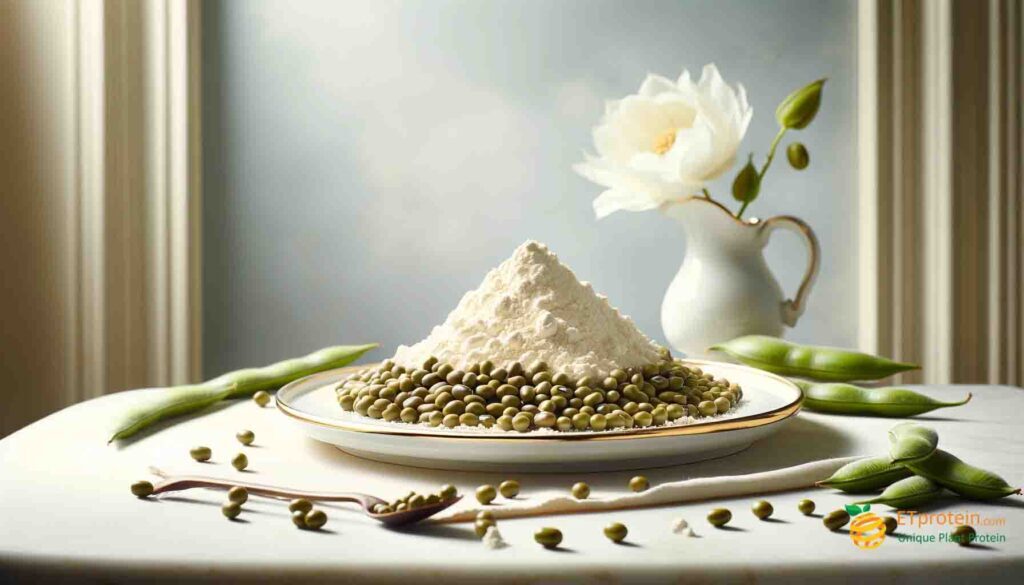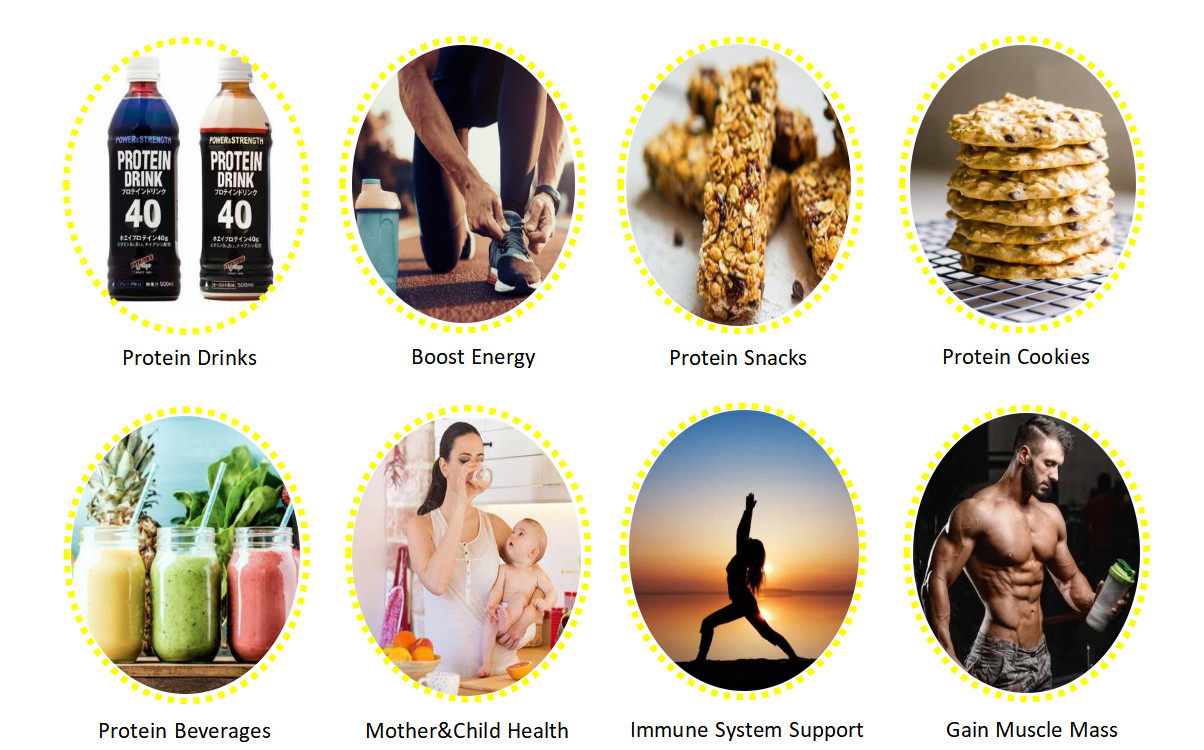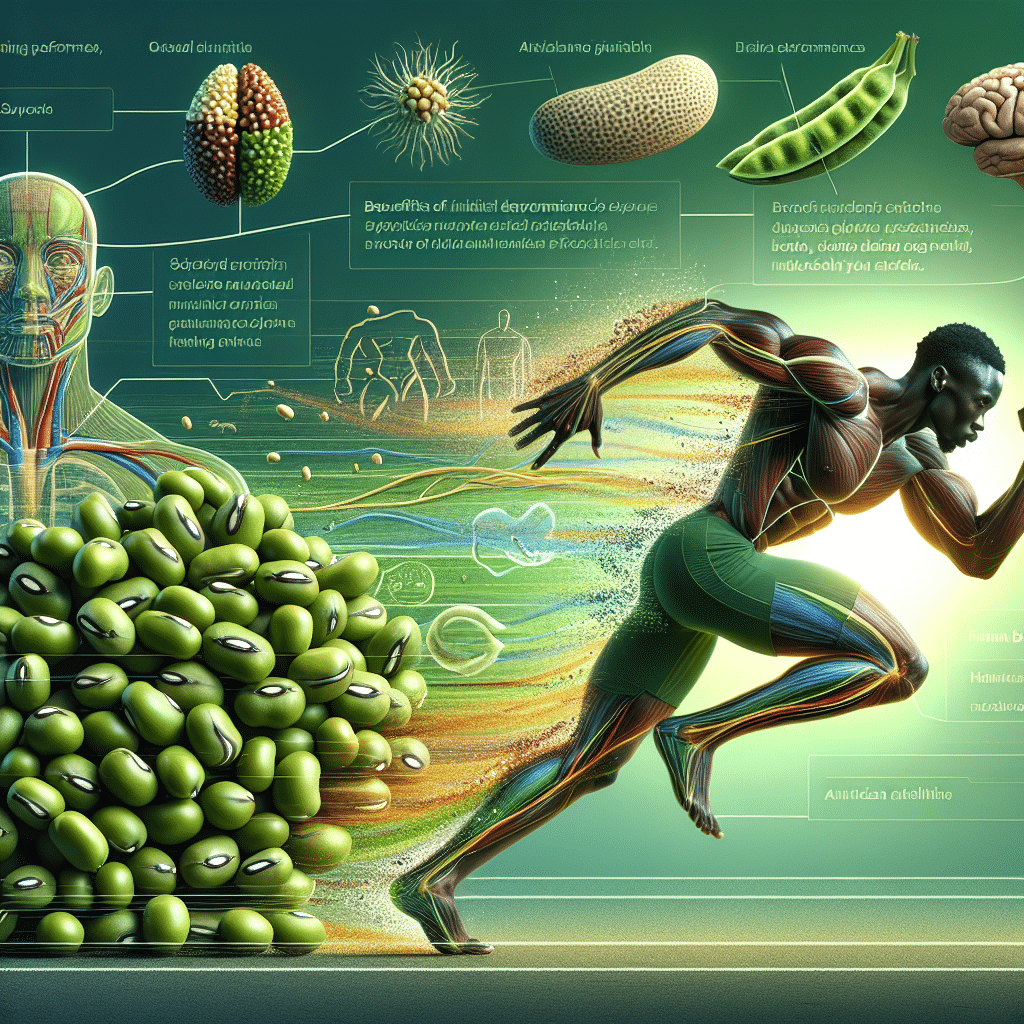Hydrolyzed Mung Bean Protein: Redefining Plant-Based Wellness
Plant-based proteins have revolutionized health and wellness, and hydrolyzed mung bean protein is leading the charge. Derived from the humble mung bean and broken down into easily digestible peptides, this powerhouse protein is redefining nutrition for athletes, health-conscious individuals, and eco-friendly consumers.
What is Hydrolyzed Mung Bean Protein?
Hydrolyzed mung bean protein is crafted through enzymatic hydrolysis, a process that breaks down the protein into smaller peptides. This transformation enhances absorption and utilization in the body, providing maximum benefits without the digestive challenges often associated with traditional proteins.
Mung beans are not just high in protein; they are a powerhouse of nutrients. A single cup of cooked mung beans contains about 15 grams of protein, which is significant for a plant-based source. They are also rich in fiber, vitamins, and minerals like potassium, magnesium, and folate. When compared to other legumes, mung beans have a higher protein-to-carbohydrate ratio, making them an excellent choice for those looking to increase their protein intake without consuming excessive carbohydrates.
Top Benefits of Hydrolyzed Mung Bean Protein
Highly Digestible and Bioavailable: Hydrolysis makes this protein easy for the body to absorb, ensuring that essential amino acids are delivered quickly and effectively. It’s perfect for people with sensitive stomachs or those seeking efficient nutrition.
Rich in Essential Nutrients: Packed with essential amino acids, hydrolyzed mung bean protein supports muscle growth, tissue repair, and overall health. It’s especially beneficial for individuals on plant-based diets, offering a complete protein alternative.
Promotes Muscle Recovery and Growth: With a high concentration of branched-chain amino acids (BCAAs), this protein is ideal for post-workout recovery. It reduces muscle soreness and accelerates the repair of muscle fibers after intense physical activity.
Supports Weight Management: Its high protein content promotes satiety, helping you feel full longer and curbing unnecessary snacking. Incorporating hydrolyzed mung bean protein into your diet can support weight loss and maintenance goals.
Eco-Friendly and Sustainable: Mung beans are a low-impact crop, requiring minimal water and resources to grow. Hydrolyzed mung bean protein is a sustainable option for those looking to reduce their environmental footprint without compromising on nutrition.

Applications of Hydrolyzed Mung Bean Protein
Hydrolyzed mung bean protein is versatile and can be used in:
1. Functional Foods: Protein shakes, bars, and smoothies.
2. Plant-Based Beverages: Dairy-free milk or protein-enriched drinks.
3. Sports Nutrition: Pre- and post-workout supplements.
4. Infant Nutrition: A hypoallergenic protein option for sensitive diets.
5. Cosmetics: Its bioactive peptides are known to support skin health and elasticity.

Why Choose Hydrolyzed Mung Bean Protein?
This innovative protein isn’t just a trend; it’s a practical solution for modern health challenges. Whether you’re an athlete looking for effective muscle recovery, a vegan seeking high-quality protein, or simply someone aiming for a healthier lifestyle, hydrolyzed mung bean protein is the ultimate choice.
Hydrolyzed Mung Bean Protein: Small Molecule, Big Impact
By choosing hydrolyzed mung bean protein, you’re not only embracing a superior protein source but also contributing to a healthier planet. It’s a win-win for your body and the environment!

Why Choose Hydrolyzed Mung Bean Protein?
1. Highly Digestible and Bioavailable: Traditional protein sources can be hard to digest for some, especially those with sensitive stomachs. Hydrolyzed mung bean protein solves this problem. The hydrolysis process breaks down complex protein molecules into smaller peptides, making it easier for the body to absorb and utilize the nutrients.
2. Rich in Essential Amino Acids: Hydrolyzed mung bean protein boasts a complete amino acid profile, including all nine essential amino acids required for human health. This makes it an excellent alternative to animal-based proteins like whey or casein, especially for vegetarians and vegans.
3. Supports Muscle Growth and Recovery: The high concentration of branched-chain amino acids (BCAAs) in hydrolyzed mung bean protein makes it a perfect choice for athletes and fitness enthusiasts. BCAAs are critical for muscle repair, reducing post-exercise soreness, and promoting lean muscle growth.
4. Promotes Digestive Health: Unlike some proteins that can cause bloating or discomfort, hydrolyzed mung bean protein is gentle on the digestive system. Its hydrolyzed form ensures easy breakdown and absorption, supporting a healthy gut environment.
5. Helps with Weight Management: Protein is a key nutrient for weight management, as it helps control appetite and promote satiety. Hydrolyzed mung bean protein keeps you feeling fuller for longer, reducing unnecessary snacking and supporting weight loss goals.
6. Environmentally Sustainable: Mung beans are a sustainable crop that requires minimal water and resources to grow. Choosing hydrolyzed mung bean protein supports environmentally friendly practices, making it an excellent choice for eco-conscious consumers.

Health Benefits Supported by Science
Emerging research highlights the powerful health benefits of hydrolyzed mung bean protein:
1. Lowers Blood Pressure: Bioactive peptides in mung bean protein act as natural inhibitors of ACE (angiotensin-converting enzyme), potentially reducing hypertension.
2. Boosts Immunity: Contains antioxidants that enhance immune function and reduce inflammation.
3. Improves Cholesterol Levels: Regular consumption may help balance cholesterol, promoting cardiovascular health.
Why It's Perfect for Modern Lifestyles?
Hydrolyzed mung bean protein meets the needs of a diverse range of consumers:
1. For Athletes: A plant-based alternative to whey that delivers on performance and recovery.
2. For Vegans and Vegetarians: A complete, plant-derived protein source that’s free from animal products.
3. For Health Enthusiasts: A nutrient-dense protein option that supports overall wellness.
4. For Eco-Conscious Individuals: A sustainable protein source with a low environmental impact.

Where to Buy Hydrolyzed Mung Bean Protein?
Discover the exceptional quality of Hydrolyzed Mung Bean Protein from YANGGE BIOTECH INGREDIENTS, available with a complimentary sample at yanggebiotech.com. Renowned as an industry leader, YANGGE BIOTECH is dedicated to manufacturing and distributing premium-grade dietary supplement ingredients, delivering purity and potency with every product.
Not only does YANGGE BIOTECH serve health-conscious consumers directly, but it also partners with top brands across the food and supplement sectors, supplying raw, pure ingredients that meet the highest industry standards. Elevate your product offerings or personal wellness with our trusted ingredients—reach out to us today to place your order and experience the YANGGE difference.
To sum up, Hydrolyzed Mung Bean Protein is more than just a plant-based protein—it’s a solution for modern health challenges. With its exceptional digestibility, rich nutrient profile, and sustainable production, it’s the ideal choice for anyone looking to enhance their nutrition while making a positive impact on the planet.
Whether you’re an athlete seeking optimal recovery, a health-conscious individual aiming for better nutrition, or someone passionate about sustainability, hydrolyzed mung bean protein is the future of plant-based health.
Why Choose Yangge Biotech for Hydrolyzed Mung Bean Protein?
Yangge Biotech is your trusted source for premium Hydrolyzed Mung Bean Protein. Here’s why:
Top-Quality Products: Yangge Biotech ensures the highest standards of purity and color consistency, meeting global regulatory standards for food, cosmetics, and textiles.
Sustainable and Ethical: The company is committed to eco-friendly sourcing and responsible agricultural practices, making it the go-to choice for businesses seeking a natural, sustainable colorant.
Customization: Whether you need powder, liquid, or concentrated forms, Yangge offers flexible solutions tailored to your needs.
Certified and Reliable: With certifications like GMP, ISO, and Kosher, you can trust the safety and quality of every batch of Carthamus Red.
Global Reach, Excellent Service: With a strong global presence and exceptional customer support, Yangge Biotech ensures a smooth, hassle-free experience from start to finish.
Discover the vibrant power of Hydrolyzed Mung Bean Protein with Yangge Biotech – where top-notch quality, sustainability, and a customer-first approach come together to elevate your experience!
References:
1.Cao J.X., Zhou C.Y., Wang Y., Sun Y.Y., Pan D.D. The effect of oxidation on the structure of G-actin and its binding ability with aroma compounds in carp grass skeletal muscle. Food Chem. 2018;240:346–353. doi: 10.1016/j.foodchem.2017.07.068. [DOI] [PubMed] [Google Scholar]
2.Wang L.Y., Ding L., Yu Z.P., Zhang T., Ma S., Liu J.B. Intracellular ROS scavenging and antioxidant enzyme regulating capacities of corn gluten meal-derived antioxidant peptides in HepG2 cells. Food Res. Int. 2016;90:33–41. doi: 10.1016/j.foodres.2016.10.023. [DOI] [PubMed] [Google Scholar]
3.Ko S.C., Kim D., Jeon Y.J. Protective effect of a novel antioxidative peptide purified from a marine Chlorella ellipsoidea protein against free radical-induced oxidative stress. Food Chem. Toxicol. 2012;50:2294–2302. doi: 10.1016/j.fct.2012.04.022. [DOI] [PubMed] [Google Scholar]
4.Masoud H.T., Ahmad A., Mozhgan S. Cytotoxic and antioxidant capacity of camel milk peptides: Effects of isolated peptide on superoxide dismutase and catalase gene expression. J. Food. Drug Anal. 2017;25:567–575. doi: 10.1016/j.jfda.2016.10.014. [DOI] [PMC free article] [PubMed] [Google Scholar]
5.Harnedy P.A., O’Keeffe M.B., FitzGerald R.J. Fractionation and identification of antioxidant peptides from an enzymatically hydrolysed Palmaria palmata protein isolate. Food Res. Int. 2017;100:416–422. doi: 10.1016/j.foodres.2017.07.037. [DOI] [PubMed] [Google Scholar]
6.Lobo V., Patil A., Phatak A., Chandra N. Free radicals, antioxidants and functional foods: Impact on human health. Pharmacogn. Rev. 2010;4:118–126. doi: 10.4103/0973-7847.70902. [DOI] [PMC free article] [PubMed] [Google Scholar]
7.Sharma N. Free Radicals, Antioxidants and Disease. Biol. Med. 2014;6:1. doi: 10.4172/0974-8369.1000214. [DOI] [Google Scholar]
8.Finkel T., Holbrook N.J. Oxidants, oxidative stress and the biology of ageing. Nature. 2000;408:239–247. doi: 10.1038/35041687. [DOI] [PubMed] [Google Scholar]
9.Poljsak B., Suput D., Milisav I. Achieving the Balance between ROS and Antioxidants: When to Use the Synthetic Antioxidants. Oxid. Med. Cell. Longev. 2013;2013:956792. doi: 10.1155/2013/956792. [DOI] [PMC free article] [PubMed] [Google Scholar]
10.Yue Y., Wu S.C., Zhang H.F., Zhang X.Y., Niu Y.H., Cao X.Q., Huang F.W., Ding H. Characterization and hepatoprotective effect of polysaccharides from Ziziphus jujuba Mill. var. spinosa (Bunge) Hu ex H. F. Chou sarcocarp. Food Chem. Toxicol. 2014;74:76–84. doi: 10.1016/j.fct.2014.09.006. [DOI] [PubMed] [Google Scholar]


